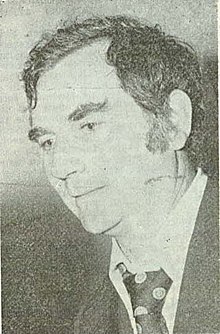Romanian literature is the entirety of literature written by Romanian authors, although the term may also be used to refer to all literature written in the Romanian language or by any authors native to Romania.

Lucian Blaga was a Romanian philosopher, poet, playwright, poetry translator and novelist. He was a commanding personality of the Romanian culture of the interbellum period.
Vintilă Horia was a Romanian writer, winner of the Prix Goncourt. His best known novel is God Was Born in Exile (1960).
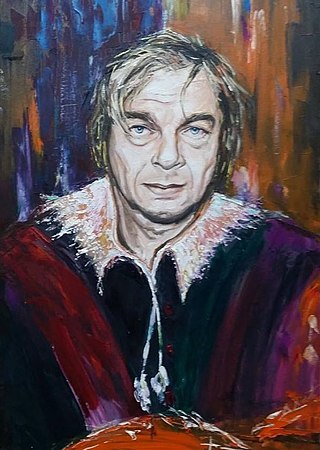
Nichita Stănescu was a Romanian poet and essayist.
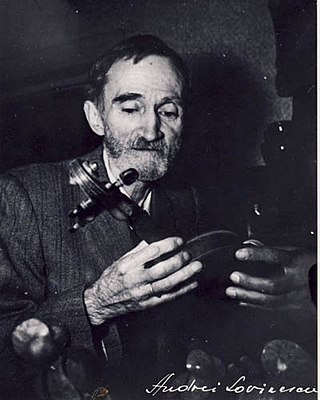
George Bacovia was a Romanian symbolist poet. While he initially belonged to the local Symbolist movement, launched as a poet by Alexandru Macedonski with the poem and poetry collection Plumb ("Lead"), his poetry came to be seen as a precursor of Romanian Modernism and eventually established him in critical esteem alongside Lucian Blaga, Tudor Arghezi, Ion Pillat, Ion Barbu, and Octavian Goga as one of the most important interwar Romanian poets. In the 1950s, he wrote the poem "Cogito", which is his poetical testament.
Matei Alexe Călinescu was a Romanian literary critic and professor of comparative literature at Indiana University, in Bloomington, Indiana.
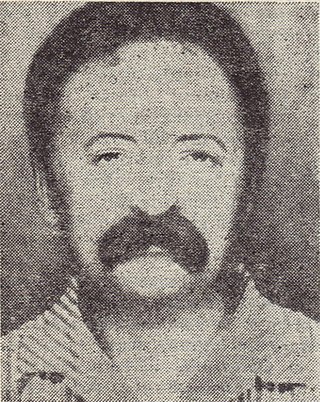
Leonid Dimov was a Romanian postmodernist poet and translator. He was one of the main representatives of onirism in Romanian poetry, explorer of the dream as an absolute, objective reality.

Dumitru Țepeneag is a contemporary Romanian novelist, essayist, short story writer and translator, who currently resides in France. He was one of the founding members of the Oniric group, and a theoretician of the Onirist trend in Romanian literature, while becoming noted for his activities as a dissident. In 1975, the Communist regime stripped him of his citizenship. He settled down in Paris, where he was a leading figure of the Romanian exile.
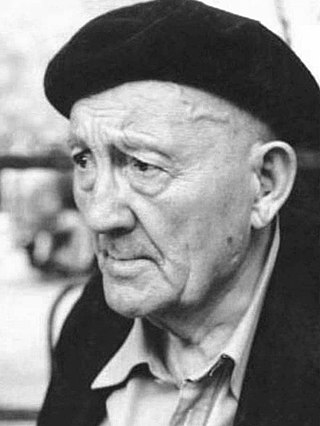
Petre Țuțea was a Romanian philosopher, journalist, and economist.
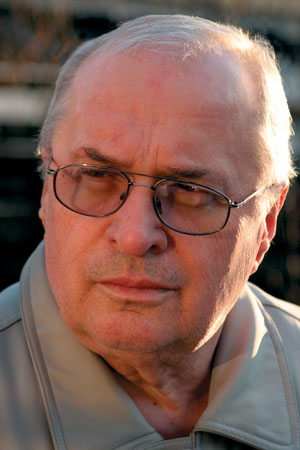
Augustin Buzura was a Romanian novelist and short story writer, also known as a journalist, essayist, and literary critic. A member of the Romanian Academy, he has been the president of the Romanian Cultural Foundation since 1990 and president of the Romanian Cultural Institute between 2003 and 2004.
Vasile Tărâțeanu was a Ukrainian writer and activist of Romanian ethnicity.

Mitică Popescu was a Romanian actor.
Virgil Mazilescu was a Romanian poet, essayist and translator.

Radu Paladi was a Romanian composer, pianist, and conductor. His compositions include stage and film music, choral works, vocal music and vocal-symphonic works, chamber music, symphonic music as well as concertos.
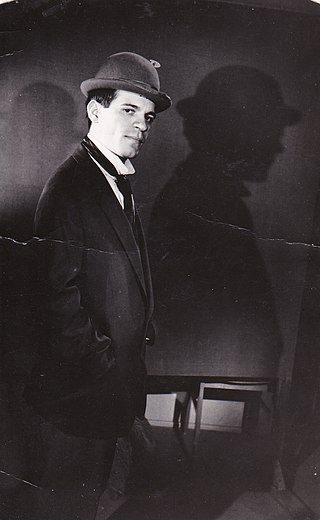
Aureliu Manea was a Romanian theatre director, actor, and writer.

Mihai Viteazul National College is a high school located at 62 Pache Protopopescu Boulevard, Bucharest, Romania. One of the most prestigious secondary education institutions in Romania, it was named after the Romanian ruler Michael the Brave.

Laszlo Alexandru is a Romanian essayist, literary critic, literary historian, translator and journalist. He is an Italian teacher. He is editor of E-Leonardo cultural magazine and coordinator of the Italian collection at the "Ecou Transilvan" Publishing House. He is known for his Dante interpretation contributions in the university field in Romania and in Europe, in the Romanian culture and in the Italian culture. Also known in Israel for his cultural studies on the Holocaust. Since 2014, he is a member of the Romanian Writers' Union. His books have been published in Romania and in the Republic of Moldova. He won the Romanian Writers' 2020 Special Award for Lectura lui Dante. Infernul; Purgatoriul; Paradisul.
Events from the year 2023 in Romania.

Anastase Demian was a Romanian painter, illustrator, and university professor.
